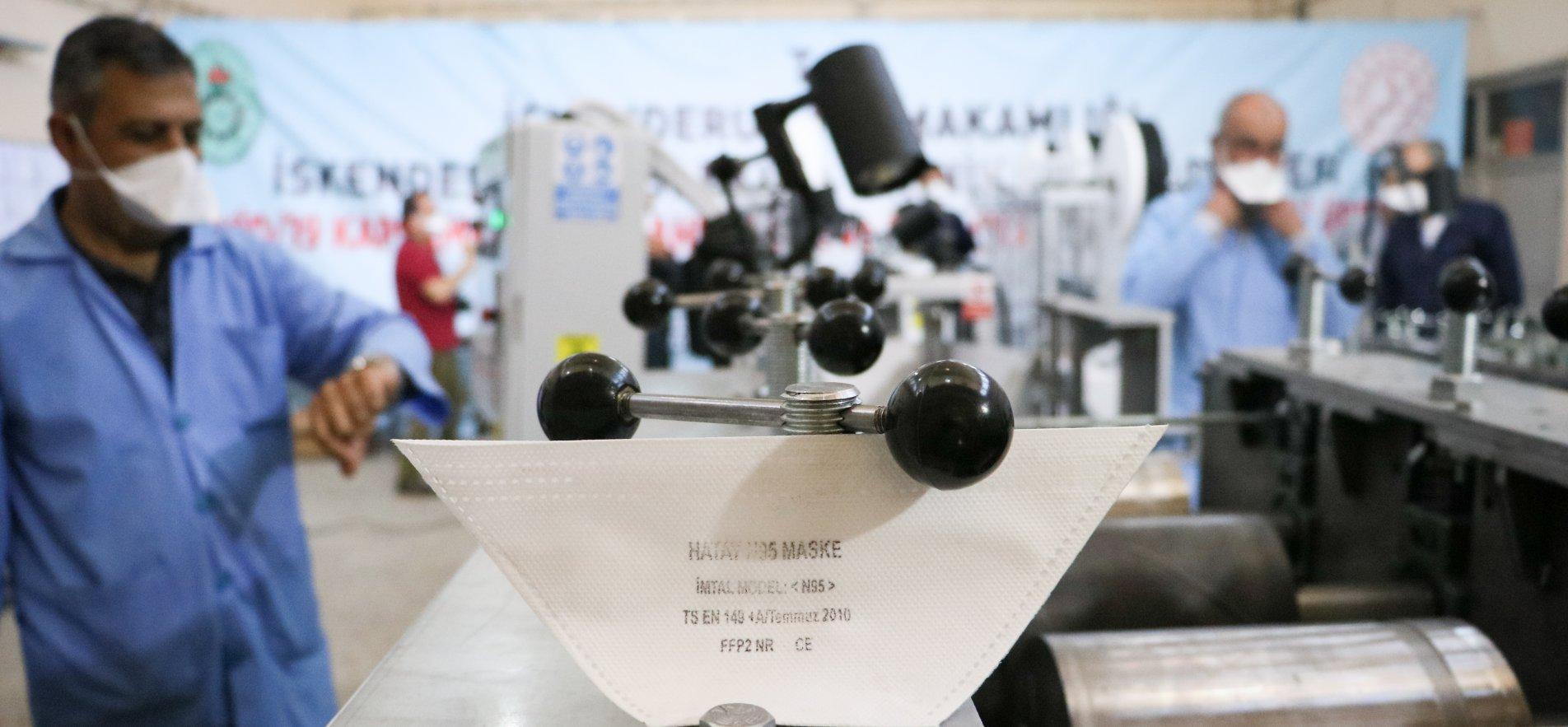R&D ERA IN VOCATIONAL TRAINING
Deputy Minister of National Education Mahmut Özer talked about future plans concerning the Research and Development centers established in vocational schools during a newspaper interview. "There will be approximately 20 R&D centers in our schools and every center will concentrate on a different field."Here are excerpts from the interview of Deputy Minister of National Education Özer:
"From now on, there will be a transition to R&D period in vocational training" said the Deputy Minister of National Education Özer. Claiming that this transition will be one of the most important developments during the Covid-19 pandemic in vocational training, Özer stated, "We are planning to open new R&D centers by considering regional distribution. There will be approximately 20 R&D centers. Every center will focus on a different field. For example, one center will focus only on software while the other will focus on biomedical device technologies. Main focus of all centers will be product development, patent, useful model, design and brand production, registration and commercialization. We will constantly increase variety of products. From now on, we will continue the training of trainers in these regional R&D centers." Özer stressed that automation, software, artificial intelligence technologies and digital skills will be updated after the end of this process adding that R&D centers will make an important contribution to these updates.
The Ministry of National Education (MEB) achieved important progress during the fight against the Covid-19 pandemic. Primarily, schools promptly started to produce many most needed products varying from disinfectants to masks, face shields to disposal aprons and allovers. MEB made an important contribution to the fight against the pandemic. Later, schools manufactured products varying from ventilators to mask machines, from air filtration device to video laryngoscope device. Deputy Minister of National Education Mahmut Özer made comments about how vocational training will be planned in the aftermath of the Covid-19 pandemic.
'We were affected negatively"
Vocational training displayed important success during the fight against Covid-19. What are your plans about the future of vocational training which gained valuable experience during this process?
For years, vocational training in our country has been providing important contributions to the business world by raising much needed human resources that have professional skills. Vocational training went through a hard time especially after the coefficient application. During that period, academically successful students did not prefer to enroll in the vocational schools. Later, there was another blow when all students were placed in schools according to their grades. Due to these reasons, vocational schools became the obligatory choice of relatively unsuccessful students. These negatively affected vocational school administrators and teachers. Vocational school students became notorious with problems, discipline penalties and lack of attendance. As a result, people started to have negative view about vocational training when graduates failed to fulfill the expectations of business market. Due to these reasons, vocational school graduates lost self-confidence.
'They are regaining self-confidence'
Did they regain self-confidence during this process?
Absolutely. The most important contribution of this process to vocational training is allowing vocational school students to regain self-confidence. They saw what they can achieve when they were given the opportunity and motived correctly. During this process, people started to talk about production capacity and success of vocational schools instead of the problems. Students regained self-confidence when national and international media mentioned the success of vocational schools. As soon as they regained trust in what they can achieve and produce, they were successful.
'Every center will focus on a different field"
Will R&D centers will be permanent in the aftermath of the Covid-19 pandemic?
From now on, there will be a transition to R&D period in vocational training. This transition will be one of the most important developments during the Covid-19 pandemic in vocational training. We are planning to open new R&D centers by considering regional distribution. There will be approximately 20 R&D centers. Every center will focus on a different field. For example, one center will focus only on software while the other will focus on biomedical device technologies. These centers will be in constant communication and support with each other. These centers will become perfection centers. The main focus of all centers will be product development, patent, useful model, design and brand production, registration and commercialization. We will constantly increase product variety. From now on, we will continue the training of trainers in these regional R&D centers.
They built confidence
"Can we say that two year-long investment of MEB in vocational training yielded results?"
Yes. The Ministry really focused on vocational training. We had initiated many projects. Most important of all, we cooperated with strong representatives from all sectors. Consequently, people built confidence in vocational schools. All these steps allowed us to produce prompt, overall and dynamic response to the needs of the business world.
What are your plans about the future?
We will continue to reinforce training-production-employment cycle in vocational training. We keep on updating trainings in cooperation with the business market. We will turn our vocational schools into production centers. We will continue to increase product and service production capacity. For example, we managed to increase our income by 40 percent and earned TL 400 million in 2019. Our goal for 2021 is TL 1 billion. The most important issue is to increase the employment capacity of our graduates in the business market and improve their employment conditions. Business cooperation with companies in the sector was our first step. We will continue to take more steps.
'We have produced all products that we focused on"
You have founded R&D centers in vocational high schools. What was your purpose?
There were two stages of contribution of vocational training to the fight against Covid-19. The first stage included serial production and delivery of most needed masks, disinfectants, face shields, disposal allovers and aprons. This stage was very successful and production still continues. Vocational schools focused on design and production of ventilators and mask machines as a part of the second stage. The Ministry founded R&D centers at vocational and technical Anatolian schools in order to design and produce these products. These centers founded in schools located in İstanbul, Bursa, Tekirdağ, Ankara, İzmir, Konya, Mersin, Muğla and Hatay carried out busy schedules. Within this context, many products such as surgical mask machines, ventilators, N95 standard mask machine, video laryngoscope device, intensive care bed, air filtration device and sample collection unit were designed and produced in vocational schools.
Cooperation with İTÜ-ASELSAN
Do you consider the possible transformation in the business market after the end of the Covid-19 pandemic while planning new updates?
Of course. After the end of this process, there will be a quick curriculum revision aiming at updating automation, artificial intelligence technologies and digital skills. We do not think of vocational and technical training institutions as places which only focus on giving basic training. We want all of our students to learn key skills required for adaptation to changing technological and social conditions. We want to eliminate the separation between vocational and general training. Due to this reason, we are cooperating with the İstanbul Technical University (İTÜ) and ASELSAN which are strong institutions both technologically and academically. Skills required in the business market will be included in the curriculum of all vocational training branches. In addition to these, we will also work in an effort to increase the general skills of our graduates.



















